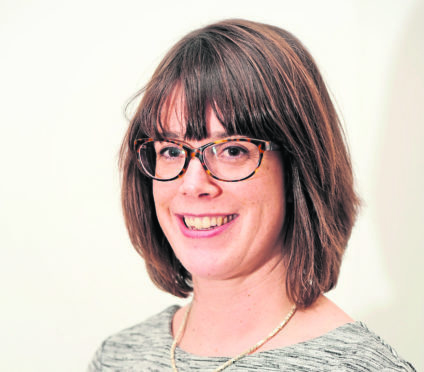It is one of the most traumatic events in anybody’s life: the death of a loved one or cherished companion.
The loss affects those of all ages, from the young child who suddenly loses a parent, to the elderly partner of a significant other with whom they have spent decades together.
Yet according to new research commissioned by Sue Ryder and Hospice UK, bereaved people in Scotland are not receiving enough help and assistance.
And the organisations believe this is particularly concerning with Scotland passing the six-month mark of the implementation of the Carer’s Act, which places a duty on authorities to signpost bereaved carers to support groups.
More than 230,000 people are bereaved every year in Scotland and the study, published today, highlights how many of feel isolated in the aftermath.
Almost a quarter of the respondents in the study said they would have liked some kind of support beyond family and friends, but didn’t access it.
This was because they didn’t know how (12%), felt uncomfortable asking for it (8%) or couldn’t get the type of support they wanted (3%).
Sue Ryder’s online community, which provides information and peer support for those who have lost a loved one, has already provided assistance to more than 110,000 people so far this year.
Hospice UK’s charitable facilities in Scotland offer a wide range of bereavement services to adults and children including one-to-one counselling in person, peer support, art therapy and walking groups.
But now, the two bodies are jointly calling for a right to bereavement support for everyone in Scotland who wants it.
>> Keep up to date with the latest news with The P&J newsletter
Elinor Jayne, Sue Ryder’s policy and public affairs manager in Scotland, said yesterday: “The death of someone close can have a lasting impact on those left behind.
“In some cases, it can lead to problems with health and wellbeing that have a significant effect on a grieving person’s life.
“This research shows that almost a quarter of bereaved people would like some form of support over and above that they may receive from family and friends but don’t get it.
“It’s now time for bereavement support to be expanded across Scotland so that everyone who needs support receives it in a way and at a stage that works for them.”
Her words were echoed by Eilidh Macdonald, Hospice UK’s policy and advocacy manager in Scotland.
She said: “It’s clear not enough people are accessing support they need to help them through the hardest of times, risking long term, far-reaching trauma and harm.
“With just 6% of bereaved people accessing support, more needs to be done to tackle barriers linked to availability, resources, awareness and stigma.
“Local and national planning must urgently address the needs of children and adults in our communities going without support when they need it most.”
Sue Ryder and Hospice UK will now be pushing for their recommendations on bereavement support to be taken forward by the Scottish Government, the NHS and integration authorities.
The report can be found at www.sueryder.org.
Widow believes ‘too many suffer in silence’ after loss
One Inverness woman, who has been using Sue Ryder’s online community since the death of her husband in July, explained she had been his carer for a long period and felt very alone after his passing.
She said: “After 50 years of marriage, I now feel I’ve lost not just my husband, but my best friend, my companion, my reason to be.
“I came across the Sue Ryder online community when I was feeling particularly low and I now find it very comforting to be able to communicate openly with people who are going through very similar experiences.”
She believes that, if someone experiences the death of someone close to them, they should automatically be offered bereavement support.
Her husband was cared for at Highland Hospice, so in addition to the Sue Ryder online community, she has been receiving bereavement counselling.
She added: “If you don’t live locally to a hospice or your loved one wasn’t cared for in a hospice, it must be much more difficult to get support.
“I think that, if you suffer a bereavement, there should be an easy route to the support that you need as I suspect too many people suffer in silence.
“It would help so much if there were local groups where people could meet others and share how they feel and maybe make friends.”
